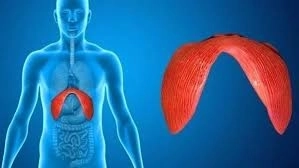
Can Hiatal Hernia Be Treated Surgically? Heres the Answer with Dr. Mohamed Rafat
Published on: 2025-06-22 | Written by: Dr. Mohamed Raafat, Consultant Cardiothoracic Surgeon
Hiatal hernia is a common condition affecting both the digestive and respiratory systems, in which part of the stomach moves up into the chest through an opening in the diaphragm. Many wonder: is surgery always necessary?
Dr. Mohamed Rafat, Consultant in Cardiothoracic Surgery, explains when surgical intervention becomes the best treatment option for a hiatal hernia.
What Is a Hiatal Hernia?
It’s a condition where part of the stomach protrudes through the diaphragm into the chest cavity. Symptoms vary depending on the size of the hernia and may include:
-
Heartburn
-
Difficulty swallowing
-
Chest or abdominal pain
-
Chronic acid reflux
-
Shortness of breath
Is Surgery Always Needed?
According to Dr. Mohamed Rafat, not all cases require surgery. In mild cases, lifestyle changes and medication can be sufficient, such as:
-
Avoiding fatty meals
-
Sleeping with head elevation
-
Steering clear of foods that trigger reflux
However, surgery may be necessary in cases such as:
-
Large or sliding hernias
-
Poor response to medication
-
Complications like ulcers, bleeding, or breathing issues
-
Stomach twisting due to the hernia (a medical emergency)
What Does the Surgery Involve?
Dr. Mohamed Rafat often performs hiatal hernia repair using laparoscopic techniques, which involve small incisions and offer:
-
Minimally invasive intervention
-
Short recovery period
-
Less postoperative pain
-
Long-lasting, effective results
The procedure includes:
-
Repositioning the stomach into the abdomen
-
Tightening the diaphragm opening
-
In some cases, reinforcing the area with a surgical mesh
Recovery After Surgery
Dr. Mohamed Rafat notes that most patients return to normal activities within two weeks, with recommendations such as:
-
Eating smaller meals
-
Avoiding bending or lifting heavy objects
-
Regular follow-up with the doctor
When to See a Doctor
Dr. Mohamed Rafat advises seeking medical attention if you experience:
-
Persistent symptoms despite medication
-
Difficulty breathing or swallowing
-
Frequent acid reflux
-
Severe chest or abdominal pain

